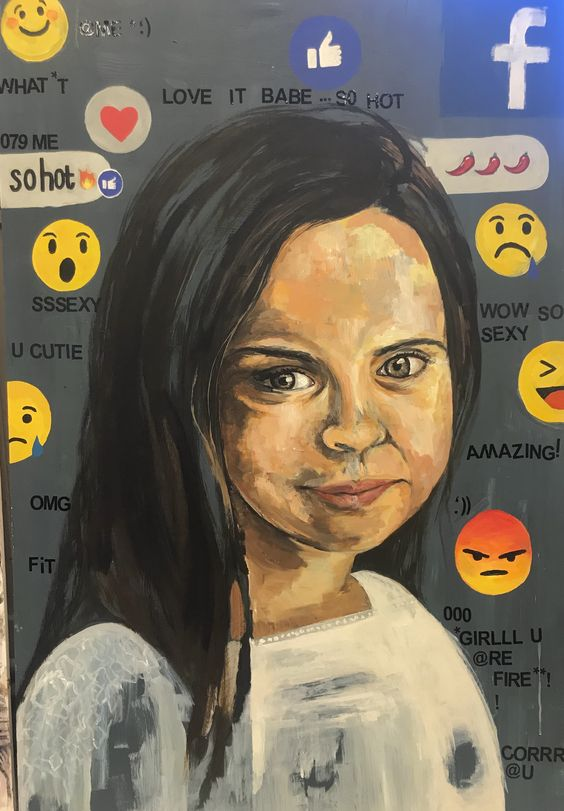Credit:(10) Pinterest
In the book the Qualified Self, Humphreys brings up an important question, is social media an enabler for narcissistic traits? Being self-aware is important to our well-being but being overly focused on one's self-importance and in need of attention from others is to be narcissistic. The self can be evaluated through the traces we decided to leave on social media. We can choose how we want others to see us, how we characterize ourselves, and how we showcase our accomplishments. The qualified self is the way we selectively present ourselves through our media traces. Some argue for the idea that social media can be a cause of narcissism making a person obsessed with themselves while others say that its primary focus is the connection you make with others. I will showcase both of these views and leave it up to you to decide or simply just think about the question at hand.
Why might social media cause people to be more narcissistic?
In the argument that social media does indeed cause people to have narcissistic traits, it can be seen in the sense that social media creates a desire to focus inwardly and become more self-centered. People who display these traits can be identified through the number of hours they spend on social media and the number of selfies they post. Studies have shown that women who hold narcissistic traits will be more inclined to post revealing photos of themselves due to the intimidatory self-presentation strategies used by a narcissist. Cyberbullying is another trait for narcissists on social media because it gives them a feeling of holding power over someone else.
Credit: kikimualifah.blogspot.com
When people use social media to flaunt looks and brag about where they are going and doing, they are looking to help validate themselves. A lack of self-esteem is a major part of the reason why they do this. A study done with 10,000 millennials found that 64% of people found that most think that Instagram is a more narcissistic platform than others like Snapchat, Instagram, and Twitter. There is an epidemic of narcissism in western culture, and it seems that social media has a role in this because it easily influences this behavior. A study found that people who posted a lot of selfies on social media have a 20% increase in developing narcissistic traits. Another study found that people who pose with others are less likely than people who pose for photos of just themselves to be narcissistic. So, though there is no definite answer that social media causes narcissism it is still found in some studies that an increased use of social media might cause you to develop narcissistic traits due to the opportunity to self-promote and enhance your ego.
Credit: (10) Pinterest
On the flip side
Communication with the world around you is the argument for social media being positive. Some people even argue that to create content you have to be interested in the needs of your audience that you are creating content for; therefore, it is not really narcissistic. By focusing on your audience and posting despite your insecurities you are being considerate of how what you are sharing will be interesting to your followers. Posting on social media can be a form of self-expression that connects with the history of personal diaries being used to keep track of one's life. We wrote about ourselves and shared that with others, but it has never been on the scale that we do today. Sharing on social media can help us connect with others and build intimacy between people. By sharing the quotidian aspects of ourselves we are connecting with others so that when the bigger things happen it is more easily recognized.
When we allow ourselves to become self-absorbed in social media is when we are at risk. Being mindful of the impact social media has on you is key to preventing yourself from developing narcissistic traits. Ask yourself questions like am I posting on social media to validate myself? Do the number of likes really define my worth? Be aware of where your self-esteem and work on building confidence that doesn't come from social media posts and likes. Young adults are especially more at risk from this so practicing self-awareness is the best thing you can do to avoid the negative impact that social media has on us.
Sources:
HUMPHREYS, LEE (2019). Qualified self: Social media and the accounting of Everyday Life. MIT Press.






No comments:
Post a Comment